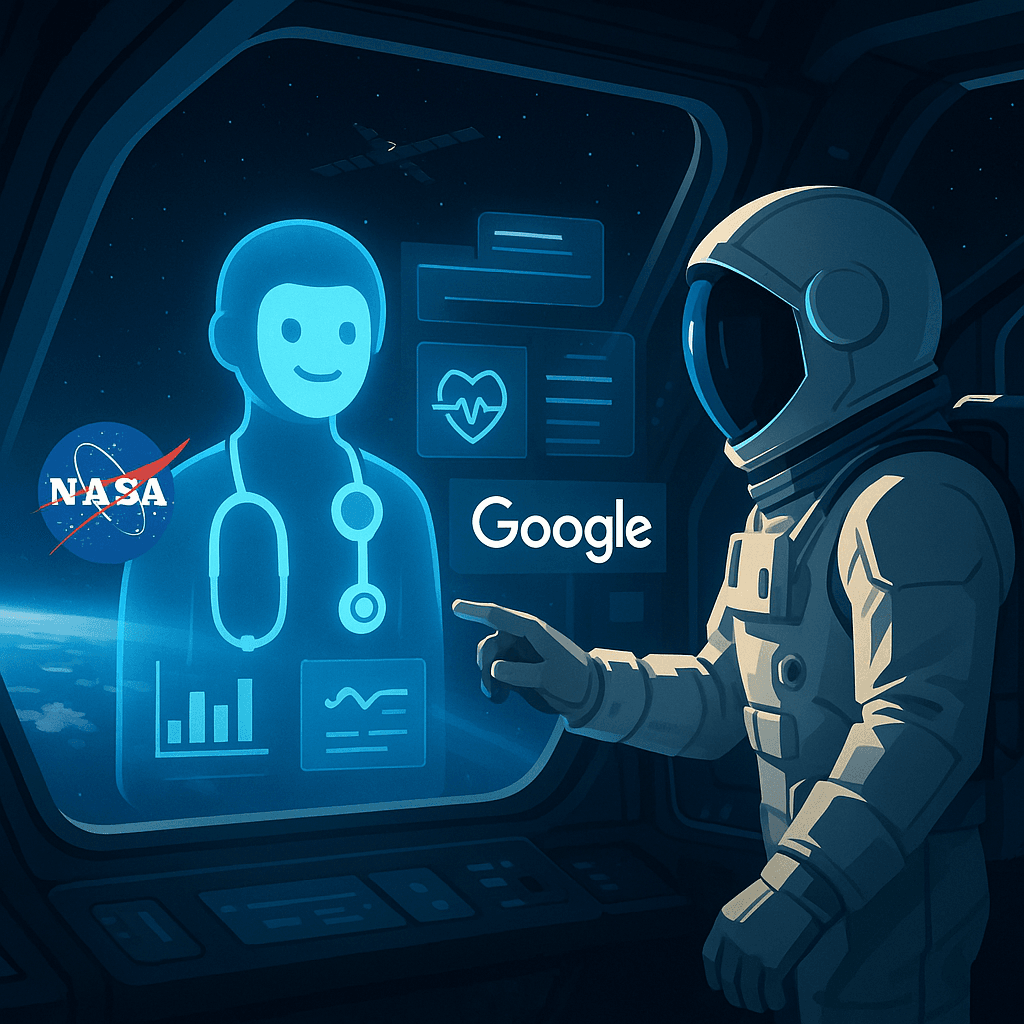TL;DR
- NASA and Google create an AI medical tool for astronauts.
- Diagnostic accuracy: 74% flank, 80% ear, 88% ankle.
- Potential Earth applications in healthcare.
- Invest in vertical SaaS healthcare solutions.
In a groundbreaking collaboration, NASA and Google are pioneering an AI medical assistant to tackle health challenges on long-duration space missions to the Moon and Mars. This development is particularly crucial as such missions push further from Earth, making immediate medical support inaccessible. The AI, part of Google's Vertex AI platform, is poised to revolutionize how astronauts manage health, directly impacting mission success and safety.
Opening Analysis
As human exploration extends beyond our planet, the importance of autonomous healthcare systems becomes undeniable. NASA, in collaboration with Google, is testing a sophisticated AI-driven medical assistant aimed at diagnosing and treating common health issues without real-time Earth support. This tool, designed to operate under the constraints of space travel, offers a glimpse into a future where AI supports extended human habitation on other celestial bodies.
Market Dynamics
The space exploration sector is dominated by public-private collaborations, with firms like SpaceX and Blue Origin pushing boundaries. NASA's initiative with Google signals a broader trend of integrating advanced AI into logistic and medical applications in space, potentially setting a blueprint for other sectors.
Technical Innovation
The Crew Medical Officer Digital Assistant (CMO-DA) integrates multiple input modalities—speech, text, and images—processing them through Google's Vertex AI. This platform leverages vast datasets and advanced machine learning to adapt to various medical scenarios. Initial testing shows high diagnostic accuracy, achieving up to 88% correctness in identifying and treating conditions like ankle injuries.
Financial Analysis
While specific financial metrics of the CMO-DA project remain undisclosed, the collaboration underlines Google's strategic positioning in the SaaS domain. Tools developed for space applications often hold dual-use potential, leading to wider market integration and profitability.
Strategic Outlook
Key risks revolve around the adaptability of AI in zero-gravity and regulatory challenges for Earth applications. However, with successful space validation, CMO-DA could spearhead a new era in medical AI—extending beyond space to influence healthcare delivery on Earth. Over the next 3-6 months, watch for incremental updates and broader implementation tests. Long-term (1-2 years), this collaboration might propel Google into a pivotal role in the healthcare AI sector, with implications reaching savvily into terrestrial markets.












